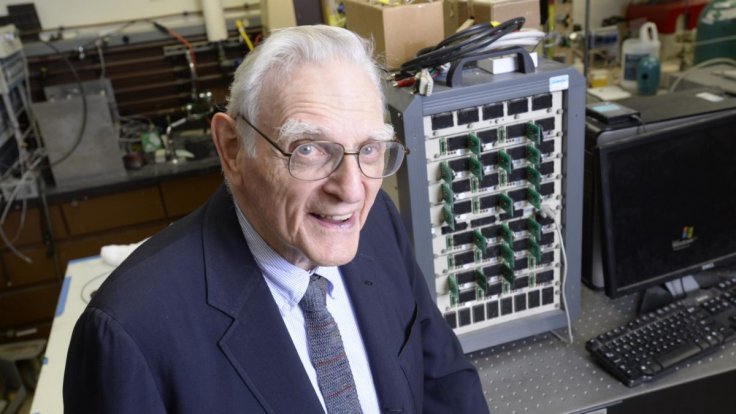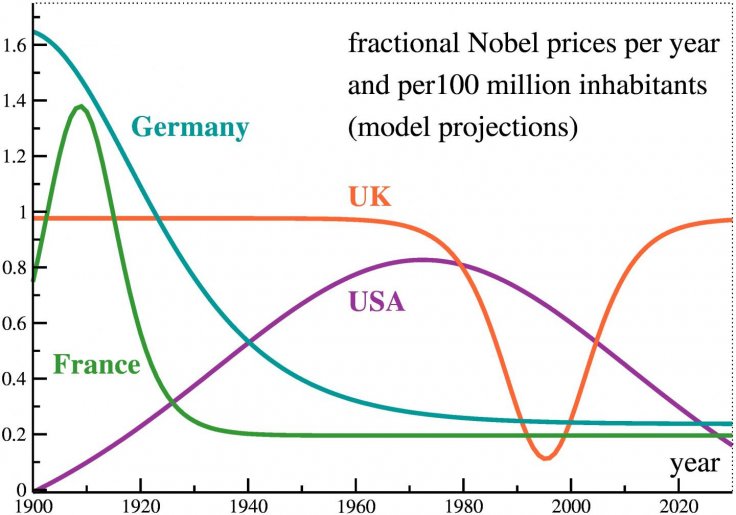
Nobel Prize in chemistry went to John Goodenough, an American professor and solid-state physicist, who is teaching mechanical engineering and materials science at The University of Texas at Austin. He developed the first functional lithium battery. But why do majority of Nobel prizes go to American scientists?
As usual, the Americans scientists who won the Nobel surpassed others put together. Ever since it was first awarded in 1901, most Nobel Prizes for science have gone to the USA, followed by the United Kingdom, Germany and France. In fact, every nations aspires to make it to the list of Nobel Prize winners but American scientists have repeatedly proved that they dominate the field as ever.
An empirical study by Professor Claudius Gros from the Institute for Theoretical Physics at the Goethe University in Frankfurt has attributed the Nobel Prize productivity in these countries to their long-term success rate, and periods during which each country has been able to win an especially large number of Nobel Prizes.
He studied Nobel Prizes for physics, chemistry and medicine where up to three scientists can share the prize. The success rates were calculated on the basis of population figures and in case of France and Germany, the periods of spurt in scientific creativity occurred around 1900, whereas for the USA, it occurred in the second half of the 20th century.

"The US era is approaching its end," said Claudius Gros. "Since its zenith in the 1970s, US Nobel Prize productivity has already declined by a factor of 2.4." He went on to predict a further decline in the number of Nobel prizes coming the US way. "Our model predicts that starting in 2025 the productivity of the USA will be below that of Germany, and from 2028, below that of France as well."
Britain has always maintained a nearly constant, very high success rate per capita throughout but it remains uncertain whether it Britain will be able to maintain this success rate, especially in view of the increasing industrialization of research in Japan and China.
"National research advancement can undoubtedly also be successful independent of Nobel Prize productivity, especially because new areas of research such as the computer sciences - a typical US domain - are not included," said Gros.
It remains to be seen whether the decline in Nobel Prize productivity in the US is cause for concern, or a pointer toward more promising research fields elsewhere in the world such as Japan and China.









